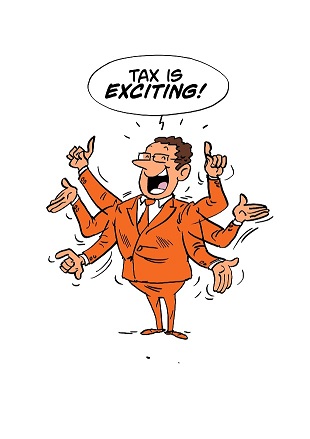You have a company and you need to invoice the client. What about the VAT? Or you can start a company and the potential clients asks about the costs, including or excluding VAT?
VAT on invoice
Value Added Tax (VAT) on the invoice is standard practice in the European Union, unless you perform a service that is VAT exempted. That aspect we do not touch in this article. Hence you are due on your invoice VAT.
How does VAT on invoice work?
You have corporate clients and you have private individual clients. Corporate clients you are obliged to provide an invoice, private individuals you are not obliged to provide an invoice. However, if you do provide an invoice , corporate or to private individuals, the invoice needs to meet the invoice requirements.

The invoice requirements are:
Article 35a of the 1968 Dutch VAT Act states the requirements for the invoice.
The following should be mentioned on the invoice:
- The date of issuing the invoice;
- The invoice number should be a sequel without numbers missing;
- Your VAT identification number;
- The VAT number of your client in case you charge a different percentage of VAT then the regular rate, 21%;
- Your name and address and the name and address of your client;
- The amount and the type/nature of the provided goods or the size and nature of the provided services;
- The date of delivery, the date on which you received a pre payment if these dates are different from the invoice date;
- The fee/price charged specified per rate, exemption, unit price exclusive of VAT. So you need to mention all the different kind of rates (if applicable) per rate. And you need to mention all pre payment discounts separately and other discounts you need to mention separately that are not included in the unit price;
- You need to mention the applicable VAT rate (21% or 0%);
- You need to mention the VAT amount in EURO currency separately on the invoice. If you need to convert the currency into the EURO currency, you need to take the final sale rate of the day on which the VAT is due. That is the invoice date. I suggest to keep a copy of the EURO conversion;
- If you charge any other rate then 21% VAT, you need to mention why. In your case you need to add on the line where you indicate that the VAT rate is 0%: VAT at 0% – supply of goods in accordance with “Tabel II, post a-7 Wet op de Omzetbelasting 1968”. This line you also find on the BP invoice.
Please note the penalty on a mistake in the invoice is huge.
Do you charge VAT?
You charge 21% VAT to a Dutch corporate client. This VAT you put on top of the invoice.
You charge 21% VAT to a Dutch private individual or a private individual living in the European Union.
You charge 0% VAT to a corporate client outside the Netherlands, but inside the EU under the condition the client provides you with an active VAT number and that VAT number you put on the invoice. The line where you normally state 21% VAT become Reverse charged VAT 0%. So you charge 0% VAT. That is not the same as not charging VAT.
You charge no VAT to a corporate client outside the EU, you charge no VAT to a private individual outside the EU. On the line where you normally state 21% VAT you now state VAT out of scope.
But do you charge VAT?
VAT on invoice you always charge in the Netherlands, so if you as entrepreneur agree with another entrepreneur on a price, then that price is excluding VAT.
For private individuals this is different. If you agree with a private individual on a price, this price is always including VAT. Your initial thought might be that this is not so important. If we add that you cannot charge VAT on the invoice to the client, so you made a mistake and you quoted a private individual ex VAT, then you cannot charge VAT. If you do charge VAT, the private individual does not need to pay this amount of VAT, but you are obliged to pay the VAT to the Dutch tax office. So you are obliged to pay a VAT amount to the tax office the client never paid to you. That makes you comply with this rule.
Orange Tax Services
You initial thought can be, how difficult can it be, 21% VAT or not. We can understand this opinion, but practice has showed that there are a number of rules to live by. If you do not, the simply VAT legislation starts to become complex and can hurt. So please have yourself assisted in VAT aspects. We will be glad to assist you.





